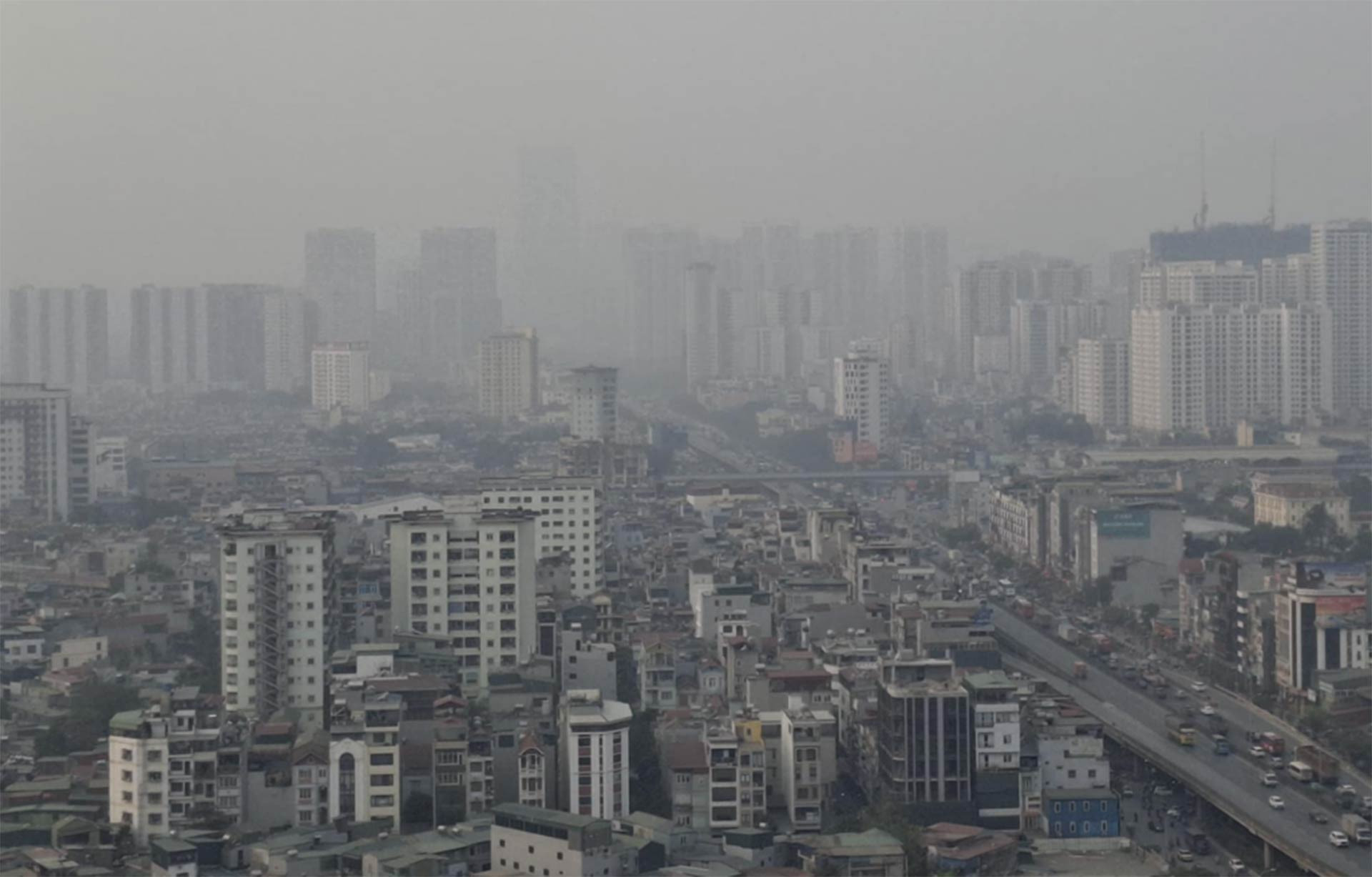
In recent days, Hanoi's sky has been veiled in a misty haze, with air quality consistently ranking the city as one of the most polluted in the world. Addressing this crisis is imperative to ensure residents can breathe clean air and enjoy a healthier environment.
Dangerous days of "red, brown, and purple" skies
Hanoi has repeatedly topped IQAir’s rankings for the most polluted cities globally in recent weeks.
The primary culprits are fine particulate matter (PM2.5) and the massive emissions from fossil fuel-powered vehicles.
Dr. Hoang Duong Tung, Chairman of Vietnam’s Clean Air Network, expressed deep concern about these invisible “silent killers” that threaten public health daily.
Fine particulate matter, or PM2.5, with a diameter smaller than one-thirtieth of a human hair, poses significant risks.
Statistics show the average person inhales and exhales around 22,000 times a day, requiring 10,000 liters of air.
PM2.5 particles, laden with toxic substances, penetrate deep into the lungs, enter the bloodstream, and disrupt the cardiovascular system.
Air pollution exacerbates heart disease, increases the risk of heart attacks and strokes, and is linked to developmental disorders like autism in children and reduced sperm quality in men.
“This is truly alarming,” Dr. Tung remarked.
Hanoi, with its 12 urban districts and 18 suburban areas, experiences varying sources of pollution.
In suburban regions, pollution stems from industrial activities, recycling villages, and the burning of waste and rice straw.
Meanwhile, urban districts face emissions from over six million motorbikes and nearly 800,000 internal combustion cars, alongside pollution from construction and waste burning.
Taking bold steps toward a greener Hanoi
“Hanoi must become a symbol of strong determination and action toward a green, livable capital,” emphasized Dr. Tung.
Every moment of inaction compounds the environmental burden for future generations.
Amid this crisis, Vingroup has launched the "For a Green Capital" campaign to restore Hanoi's clean and safe environment.
Dr. Tung lauded Vingroup’s leadership in reducing air pollution.
In June 2024, the company initiated the "Fierce Vietnamese Spirit – For a Green Future" campaign to encourage the transition from gasoline-powered to electric vehicles.
By 2025, in response to Hanoi’s escalating pollution levels, Vingroup intensified efforts with further decisive actions under the "For a Green Capital" initiative.
Economist Pham Chi Lan also praised Vingroup’s role, noting public frustration over Hanoi’s pollution.
The recent designation of Hanoi as the world's most polluted city has heightened awareness and urgency for action.
Lan underscored the need for robust public health advisories and firm commitments from authorities to improve air quality.
“Vingroup’s leadership is commendable,” she said.
Lan highlighted Vingroup’s sacrifices, such as introducing green vehicle lines and offering financial support for transitioning to electric vehicles, as a reflection of its dedication to community welfare over corporate profit.
While transportation accounts for 70% of urban pollution, the public transit system must lead the shift toward cleaner alternatives, as millions rely on daily commuting.
“Public transit improvements should have been implemented more swiftly and effectively,” she noted.
A collective effort for a healthier future
Dr. Tung described Hanoi’s air pollution as a “crisis” that demands immediate, decisive action to prevent irreparable damage to public health and future generations.
Vingroup’s Vice Chairman, Nguyen Viet Quang, stressed that achieving clean air is not the responsibility of one entity but a collective effort involving government, businesses, civil organizations, and individuals.
Simple actions, such as using eco-friendly transport, reducing plastic usage, or planting a tree, can lead to significant changes.
Dr. Tung encouraged everyone to contribute through daily habits like choosing green transportation options such as buses or electric vehicles.
On the policy front, he suggested adopting measures successfully implemented in other countries, including financial incentives for transitioning to electric vehicles, waiving registration fees for EVs, and facilitating land use for charging station construction.
The path to a cleaner Hanoi requires urgent, unified efforts to reclaim its skies and secure a sustainable future for all.
Hanh Nguyen